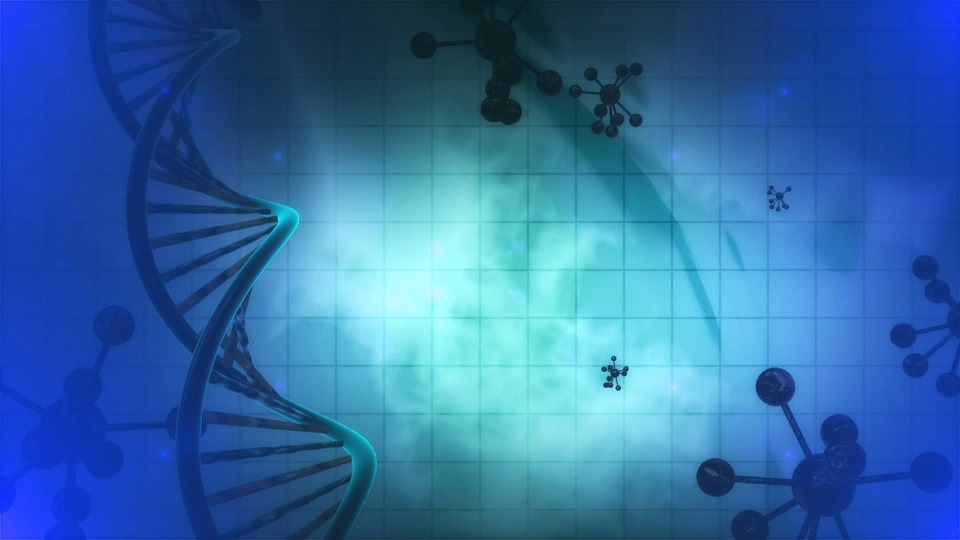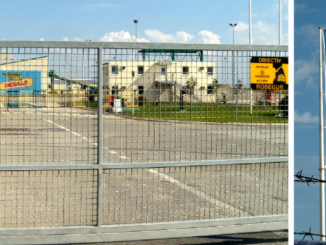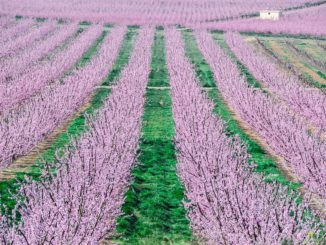
For the past years there has been a huge debate on the introduction of New Genomic Techniques (NGTs) also known as new GMOs in the agricultural sector. The terms “sustainability” and “sustainable agriculture” have been focal points which arguments on both sides are drawn from, albeit with different premises and argumentation. As the next step in New Genomic Techniques legislation is being shaped in the EU, proponents for the use of NGTs and opponents continue to emphasise their views. Here’s an introduction to the issue in the broadest of terms – a primer – from new contributor to ARC Thea Lyngseth.
In 2019, the European Commission began reviewing the current legislative framework of GMOs to see if it was “fit for purpose” for NGTs. NGTs are a new form of technology that enables the modification of an organism’s genetic makeup (Knott & Doudna, 2018). Pro-deregulation of NGTs claims that they differ from traditional GMOs because of their technological advancement and precision. Opponents, on the other hand, view it as a continuation of GMOs. The European Commission categorises NGTs as the creation and development of techniques since 2001 that can alter the genetic material of an organism (European Commission, 2021). Finally, in the context of agriculture, NGTs would change the genes of crops.
The European Commission’s announcement on its research catalysed the debate on NGTs into the international domain, where it has been a focus for politicians, farmers, NGOs, companies and civil society. Shaping into those who are for the deregulation and those who wish NGTs to be considered GMOs and fall under strict regulation. The European Commission’s study was published in April 2021, with the EC concluding that the current GMO legislation needed to adjust to advancements in science and technology and that NGTs would be an asset to achieve the EU’s sustainability goals.
The European Commission announced that in the second quarter of 2023, approximately June, it would put forth its new legislation for NGTs. The EU executive assured that the legislation would encapsulate a high standard of protection for both human and animal health whilst contributing “to a more resilient and sustainable food system through innovative plant products.” (European Commission, 2022, 7). In waiting for what the legislation will look like, proponents welcome the EU’s new potential legislation, whilst adversaries emphasise the strong need for regulation and labelling of NGTs.
The European Union has proclaimed itself as a front-runner in climate change and promoting sustainable agriculture in the EU Green Deal and Farm to Fork, the latter focusing on agriculture and food production within the EU. Currently, the EU’s agricultural sector has a high level of production with high inputs of pesticides and chemical fertilisers. It is estimated that the EU’s agricultural production accounts for 10% of anthropogenic emissions in the EU (Bais-Moleman et al, 2019). The European Commission has emphasised in its strategies the importance of shifting to more sustainable agricultural practices, with aims to cut 50% of its pesticide use by 2050 and increase organic farming by 25% by 2030.
Sustainable Agriculture
Sustainable agriculture does not have one definition and this has caused the term to be used by different stakeholder groups with varied views on NGTs. Some view it as a resource for sustainability while others see it as a hindrance. In the same paragraph in its Farm to Fork strategy, the European Commission addresses the importance of protecting plants from diseases and pests. As well as, stating that biotechnology “may play a role” in sustainability as long as they are “safe for consumers and the environment”. It also emphasises the importance of seed protection and diversity.
Opponents of NGTs in agriculture argue that introducing NGTs would in itself contribute to the continuation of unsustainable agricultural practices, by reinforcing the current system favouring large-scale farming and intensification. The NGT seeds come with proprietary rights which include patents, companies such as Bayer/Monsanto, Corteva, BASF and ChemChina dominate the patent holding and these are the same companies that sell pesticides. Pro regulation groups worry that it would place a large portion of future food security in their hands, reduce competition in the market and make farmers dependent on them. The European Commission acknowledges in its NGT study that there are concerns about high business concentration, but views patenting and licensing as a form of promoting innovation and development of NGTs (European Commission, 2021).
Proponents of NGTs have argued that by not using NGTs, the EU would not be able to achieve its sustainability goals and its aims within the Farm to Fork. The NGTs are conveyed as a necessity to address the consequences of climate change as NGT plants would be more resilient to climate change in the form of resistance to drought or certain pests. Moreover, it would be part of transitioning to sustainable agriculture and creating sustainable, resilient food systems. In the study of April 2021, the European Commission presented a concurrence to these arguments that biotechnologies have the potential to contribute to sustainable agriculture and reduce agricultural inputs such as pesticides.
In response, opponents argue that the reduction of pesticides is not a guarantee, as historically the introduction of GMOs has continued the dependency on pesticides. Besides, environmental groups have highlighted that the reduction of pesticides is not a sufficient reason for NGTs to be used, as there already exists alternative farming practices that do not use pesticides and are considered sustainable. Introduction of NGTs, would not not address other harmful aspects such as monocropping, soil depletion and deforestation, which also need to change for the current agriculture system to become considered sustainable.
Other concerning aspects that are highlighted are the potential risks on biodiversity and the reduction of genetic diversity. Unsustainable farming practices and climate change have caused the reduction of genetic diversity in crops. By introducing NGT seeds, it risks continuing reducing the diversity in crops, thus preventing the European Commission’s intention of protecting plant diversity and creating a resilient food system. Furthermore, NGTs risk damaging organic farming’s guarantee that the products are fully organic: NGTs could have unintended consequences of the spreading of genes to non-modified crops. This would risk the integrity of organic farming and the EU’s Farm to Fork goal of making at least 25% of the agricultural land in the EU organic by 2030.
The discussion goes beyond NGTs themselves, but to how they will be used in agriculture and by the industry. The deregulation touches upon debates on legislation, ethics, sustainability and what constitutes a necessity for climate change mitigation. In the European Commission’s documents and strategies there lies a tension between the different goals and how to achieve them. How can the European Commission ensure genetic diversity and the increase of organic farming while introducing NGTs? Furthermore, where do New Genomic Techniques fit in when looking at the entirety of what is needed for sustainable agriculture to be achieved?
New Genomic Techniques in the EU – on the Road to Deregulation?
Bibliography
Bais-Moleman, A. L., Schulp, C. J., & Verburg, P. H. (2019). Assessing the environmental impacts of production-and consumption-side measures in sustainable agriculture intensification in the European Union. Geoderma, 338, 555-567.
Bayer (April 2020) Here are the facts about agriculture and nutrition brochure. URL:https://release.ace.bayer.com/sites/default/files/2020-04/here-are-the-facts-about-agriculture-and-nut rition-brochure.pdf
Biotech lobby’s push for new GMOs to escape regulation:New Breeding Techniques’ the next step in corporate control over our food? (2016) Corporate Europe Observatory. URL: https://corporateeurope.org/en/food-and-agriculture/2016/02/biotech-lobby-push-new-gmos-escape-regul ation
Broothaerts, W., Jacchia, S., Angers, A., Petrillo, M., Querci, M., Savini, C., … & Emons, H. (2021). New Genomic Techniques: State-of-the-Art Review.
COMMISSION STAFF WORKING DOCUMENT Study on the status of new genomic techniques under Union law and in light of the Court of Justice ruling in Case C-528/16 (2021) European Commission. URL: https://ec.europa.eu/food/system/files/2021-04/gmo_mod-bio_ngt_eu-study.pdf
Corporate Europe Observatory(2021) Derailing EU rules on new GMOS: CRISPR-Files expose lobbying tactics to deregulate new GMOs. URL:
https://corporateeurope.org/en/2021/03/derailing-eu-rules-new-gmos
Demeter (April 5th 2022) Petition: Keep New GM Food strictly regulated and labelled. URL:https://demeter.net/keep-new-gm-food-strictly-regulated-and-labelled/
Demeter (2021) Position Paper on New Genomic Techniques.
URL: https://demeter.net/wp-content/uploads/2021/02/position_paper_new_genetic_engineering_20210211.pdf
Dr. Janet Cotter (2018) Gene-edited organisms in agriculture: risks and unexpected consequences. Logos Environmental, U.K. and Dana Perls, Friends of the Earth, U.S.
European Commission (2019) The European Green Deal. URL:
https://eur-lex.europa.eu/legal-content/EN/TXT/HTML/?uri=CELEX:52019DC0640&from=EN
European Commission (2020) Farm to Fork Strategy. URL:
https://www.europeanfiles.eu/wp-content/uploads/2020/11/Farm-to-Fork-Towards-a-sustainable-and-resili ent-food-system-in-Europe-issue-64.pdf?fbclid=IwAR2kTcbx-0kT_Pa63XK-VemhUPbrogKqv3niI6j_0_IfKt w_2Tioqb6G5EQ
European Commission (2021) Legislation for plants produced by certain new genomic techniques. Feedback and Statistics: Inception Impact Assessment. URL:
https://ec.europa.eu/info/law/better-regulation/have-your-say/initiatives/13119-Legislation-for-plants-produ ced-by-certain-new-genomic-techniques/feedback_en?p_id=26519622
European Commission (2021). Study on the status of new genomic techniques under Union law and in light of the Court of Justice ruling in Case C-528/16 (2021) European Commission. URL: https://ec.europa.eu/food/system/files/2021-04/gmo_mod-bio_ngt_exec-sum_en.pdf
European Commission (2022) Commission work programme 2023: A Union standing firm and united. URL:https://commission.europa.eu/system/files/2022-10/com_2022_548_3_en.pdf
European Commission (2022) Commission work programme 2023. European Commission. URL:https://commission.europa.eu/system/files/2022-10/com_2022_548_3_en.pdf
EuroSeeds (January 27th 2022). Farm to Fork Strategy: How to reach the targets? URL: https://euroseeds.eu/news/farm-to-fork-strategy-how-to-reach-the-targets/
FoodWatch (31st of January 2023) New Genome Techniques (NGT) – A risky corporate distraction from real sustainable solutions. Questions & Answers regarding pesticide use and other impacts on agriculture. URL:https://www.foodwatch.org/fileadmin/-INT/pesticides/2023-01-30_foodwatch_Pesticides_and_NGTS s.pdf
Friends of the Earth (March 2021) Green Light for New GMOs? How the EU Commission broke its own rules to let the biotech industry help rewrite GMO safety laws. URL:
https://friendsoftheearth.eu/wp-content/uploads/2021/03/Green-light-for-GMOs.pdf
Friends of the Earth (2022) New GMOs: A risky distraction to climate & food security. Friends of the Earth Europe Media Briefing on the Environmental Risks of new GMOs.
URL:https://friendsoftheearth.eu/wp-content/uploads/2022/12/08-FoEE-GMO-New-GMOs-briefing-ENG-r mr.pdf
Greens and EFA (29th September 2022) Behind the smokescreen: Vested interests of EU Scientists lobbying for GMO deregulation. URL:https://www.greens-efa.eu/en/article/study/behind-the-smokescreen
IFOAM (25th October 2022) GMO Regulation in the EU – The ‘Last Bastion’ Might be Falling. IFOAM organics. URL:https://www.ifoam.bio/news/gmo-regulation-eu-last-bastion-might-be-falling
Knott, G. J., & Doudna, J. A. (2018). CRISPR-Cas guides the future of genetic engineering. Science, 361(6405), 866-869.
Letter undersigned by non-governmental organizations (September 2021) Biased from the outset: The EU Commission’s “working document” on new GM techniques fails to uphold environmental and consumer protection standards. URL: https://demeter.net/biased-outset-eu-commissions-working-document/
MCCluskey. C, Hubbard. K, K (September 11th, 2020) How seed patents threaten small seed companies. URL: https://civileats.com/2020/09/11/op-ed-how-seed-patents-threaten-small-seed-companies/
MPhil Robinson, C. (February 2021).Gene editing: Myths and reality: A guide through the smokescreen. Greens and EFA. URL:https://extranet.greens-efa.eu/public/media/file/9065/6768
Organization chart DG Sante (n.d.) European Commission. URL : https://ec.europa.eu/info/sites/default/files/organisation_charts/organisation-chart-dg-sante_en.pdf
Peschard, K., & Randeria, S. (2020). ‘Keeping seeds in our hands’: the rise of seed activism. The Journal of Peasant Studies, 47(4), 613-647.
ReImagine Europe. (2021). White Paper on the Regulation of Genome Editing in Agriculture
Scott, D. (2011). The technological fix criticisms and the agricultural biotechnology debate. Journal of agricultural and environmental ethics, 24(3), 207-226.
Shattuck, A. (2021). Generic, growing, green?: The changing political economy of the global pesticide complex. The Journal of Peasant Studies, 48(2), 231-253.
Velten, S., Leventon, J., Jager, N., & Newig, J. (2015). What is sustainable agriculture? A systematic review. Sustainability, 7(6), 7833-7865.
Umesha, S., Manukumar, H. M., & Chandrasekhar, B. (2018). Sustainable agriculture and food security. In Biotechnology for Sustainable Agriculture (pp. 67-92). Woodhead Publishing.





